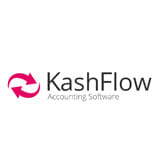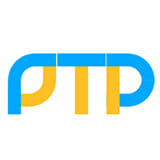Call us today to arrange a free no obligation consultation on 01322 315755 or submit an enquiry online.
Let us answer your accountancy questions. If you have any other questions, please don’t hesitate to ask. Call 01322 315755 or email .
HOW CAN I MAKE THE MOST OF HAVING AN ACCOUNTANT?
Having an accountant will free up your time and can even save your business money, giving you more time to work on growing it. Here are some of the ways you can ensure you get the most out of your accountancy services:
- Make the most of free consultations. This is a good starting point, allowing you to find out costs and ask questions.
- If you’re not sure, ask. We are always happy to answer questions if you’re not sure about something another accountant has told you, or you have questions of your own.
- Make sure your accountant is accessible. Ensure you can meet them face to face and will have good levels of communication.
- Prepare ahead of meetings. Make a note of questions and, if you have time, prepare an agenda so you know exactly what you want to get out of the meeting.
- Organise paperwork. Your accountant can do all the hard work for you, but they will need the correct paperwork in the first place.
- Give details. Don’t be afraid to ask questions. Give as much detail as you can, so your questions can be answered in equal depth.
DO I NEED TO HAVE AN ACCOUNTANT/BOOKKEEPER?
You don’t have to – there is no legal requirement. However, there are legal requirements to do with tax compliance, VAT, payroll, etc. If you get something wrong, you could be faced with large fines. It can be better value in the long run to employ an accountant. And remember, accountancy fees are tax deductible.
DO I NEED A BUSINESS PLAN?
A business plan is the perfect starting point. We can provide you with a template or give further guidance, depending on what you require.
DO I NEED TO TAKE OUT FINANCING?
If required, we can put you in touch with specialists. If you have questions about financing, we have contacts who can help you access grants. We can also help you with applications for funding bodies.
DO I NEED A BUSINESS BANK ACCOUNT?
Yes, this is a legal requirement for limited companies. For sole traders it’s optional, but it’s usually advisable.
WHAT BUSINESS STRUCTURE SHOULD I USE?
There are many, from sole trader, to partnership, to limited company. There are also other kinds of company, such as community interests or limited liability partnerships. We can help you work out the best option for you.
WHAT DOES SELF-EMPLOYED MEAN?
This means you are receiving income from a business or trade but this income is not taxed at source by an employer or agency. You need to declare this money to HMRC as part of a self-assessment tax return. We can help you complete your tax return, including giving advice on expenses and tax deductions.
WHAT CAN I CLAIM?
This will depend on your trade. It might include options such as travel and telephone bills – we can advise you further.
SHOULD I BECOME A LIMITED COMPANY?
Limited companies pay fixed-rate corporation tax. It will depend on what is more beneficial for you and your business.
WHAT INFORMATION DO I NEED TO PROVIDE TO MY BOOKKEEPER?
We will need documentation regarding all your expenses, such as receipts. You can send these to us digitally or give us paper copies – whatever works best for you. This allows us to keep track of cashflow and submit tax returns on your behalf.
HOW DOES VAT WORK?
Standard VAT requires you to do the following:
- Add up all the VAT you have charged (20% on top of net fees)
- Deduct VAT you have paid to suppliers
- Pay the difference to HMRC
This will usually need to be reported to HMRC quarterly in the form of a VAT return.
DO I NEED TO REGISTER FOR VAT?
This depends on whether you are close to reaching the threshold for VAT registration. If your turnover is close to this figure or likely to go over it soon, you may be required to register for VAT. You can find out current thresholds at GOV.UK.
It might be the case that registering for VAT will be beneficial for you, allowing you to claim back VAT, or charging VAT and paying it over at a lower rate. We can advise you further based on your personal circumstances.
ARE THERE ANY VAT EXEMPTIONS?
You may be exempt if you are a sole trader. However, the advice from HMRC can be a little confusing and the penalties can be serious. You can begin by looking at the information provided by the government, and if you need any further advice, please don’t hesitate to ask.
IS IT A LEGAL REQUIREMENT TO HAVE A REGISTERED BUSINESS ADDRESS?
Yes, you will need to have an address to register your business with Companies House. This can be your own address or, if you prefer, you can use a virtual office address service such as ours, using our address to register your business.
HOW DO I REGISTER MY BUSINESS?
You need to register directly with Companies House and HMRC. We can help and advise if needed.
HOW MUCH DO COMPANY SECRETARIAL SERVICES COST?
They are charged at a fixed annual rate:
- £75+VAT for existing clients
- £150+VAT for new clients
WHAT CAN BE SENT TO MY REGISTERED ADDRESS?
All business correspondence can be sent here.
WHAT DO I NEED TO SET UP VIRTUAL OFFICE ADDRESS SERVICES?
We will just need some basic details, proof of identity and a utility bill proving your personal address.
HOW CAN I GET MY MAIL?
You can collect it, or we can arrange to have it forwarded on to you. This is convenient if you are an accounts or bookkeeping client as well as we can receive everything we need to keep track of your accounts.
SHOULD I BECOME A LIMITED COMPANY?
The advantage as a limited company is that you pay a fixed-rate corporation tax. Sole traders are subject to normal income tax rates and Class 4 National Insurance contributions to be paid on profits. You can find out more and see current rates on the government’s website.
ARE THERE ANY DISADVANTAGES TO BEING A LIMITED COMPANY?
Accountancy fees will be higher as more administration is required. However, you may pay less in tax, so there are pros and cons. We will explain your options to you in full before you decide whether to incorporate.
ARE THERE ANY DEADLINES I NEED TO KNOW ABOUT?
The financial year end is set by Companies House and is normally 12 months from initial setup. There is a nine-month period from financial year end for you to file accounts with Companies House, and 12 months to file corporation tax returns and accounts with HMRC.
WHAT CAN I CLAIM FOR?
This will depend on your trade. There are some general things that will apply to most trades, such as travel, telephone bills and equipment. We can advise you further when completing your accounts.
WHAT IS THE TAX YEAR?
It runs from the 6th April to the 5th April.
WHAT ARE THE DEADLINES FOR TAX RETURNS?
They are due by the 31st January from the end of each tax year.
DO I NEED TO HAVE A PAYROLL SCHEME?
If any of the people you are paying within your business are classed as employees by HMRC, you will need to have a payroll scheme in place. This is to make sure that they are being taxed properly as you will be responsible for the tax and National Insurance contributions that you deduct from them and pay to HMRC. If you’re not sure whether you need a payroll scheme and whether the people who work for you are classed as employees or self-employed, we can advise you further. If you do need a payroll scheme, we can administer it for you and pay your staff members by BACS.
CAN I BENEFIT PERSONALLY FROM HAVING A PAYROLL SCHEME?
It’s possible that it might be more tax efficient for you to pay yourself a salary and dividends as you can benefit from the tax-free personal allowance. We will offer you personalised advice.
DO I NEED TO USE PAYE?
You don’t if the people who work for you are classed as self-employed as they will be responsible for their own tax and National Insurance contributions.
GET THE PROCESS STARTED
Find out more about how we can help you with your accountancy needs.












